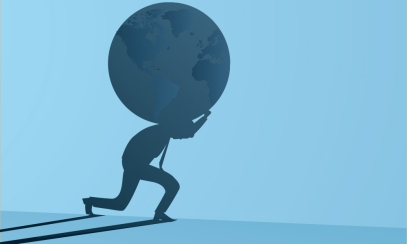Our hunger and thirst for righteousness
When I was asked whether I had ever personally observed a hunger and thirst for righteousness, I had to say it was in the 1960s in the slums of Santiago, the capital of Chile. My cousin was one of four Holy Cross priests out of Notre Dame, Indiana, who were missionaries at work in San Roque parish, six blocks wide and 12 blocks long with a population of 20,000 of the poorest people I had ever seen.
Over a period of 15 years, I visited San Roque three times. The people lived in shacks and lean-tos, had no plumbing, got water delivered into a barrel from a municipal truck every two days, and were living, I learned, on an equivalence of $5 per week. Within walking distance of this slum were homes of some of the elite of Chilean society, multi-storied, neat and clean, surrounded by walled courtyards with palm trees and fountains.
In the slums were the native Indians, people of mixed race and immigrants. In the fine homes were the descendants of the Spanish conquerors of this narrow strip of the Andes, several dozen families who owned most of the arable land and ran the country. From the Holy Cross priest I learned that their suffering people were hungry and thirsty for righteousness of the elite to show, but it was slow in coming in those decades.
I saw hunger and thirst for righteousness again in the “People’s Republic” of Poland, when I spent a month there, behind the Iron Curtain, in the summer of 1970. Twenty-five years before that, the victorious Allies at Yalta had yielded to Stalin to get Russian help against Japan and had sold Poland down the river into Stalin’s hands. I saw a whole nation, with a communist government imposed upon it, resisting in every way it could devise, from sabotage to telling Russian jokes. The Poles were hungry and thirsty for righteousness that would make them free again. It would not come for almost 20 more years and the advent of a Pope from their own country.
When contemplating the fourth beatitude, we have to remember that WE are the righteous. We are the ones who possess the Gospel, which tells us that we are to put God first in our lives and then to care for and share with our neighbor as we would do for ourselves. There are non-believers who have a righteousness also, based on a respect for human nature, that prompts them to care and share. But we who are committed to the Gospel ought to be there and ready when people are hungry and thirsty for righteousness.



